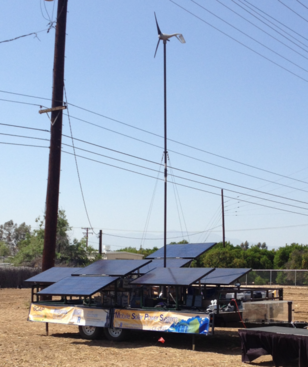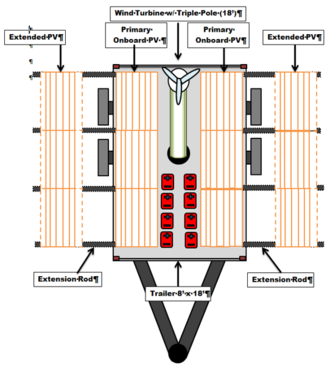Overview
The University of California-Riverside (UCR) has recently re-organized its Office of Sustainability, which oversees and supports all aspects of sustainability across campus. UCR, as part of the ten campus University of California system, is following an aggressive Carbon Neutrality Initiative, committing the university to net zero carbon emissions from all its activities, buildings and vehicle fleet by the year 2025. UCR is applying much of its cutting-edge research and technology transfer to help achieve this goal, including bringing new zero-emitting vehicles and sustainable energy technologies and infrastructure to the campus.

A key student sustainability program at UCR is the Green Campus Action Plan which is part of the associated student body. GCAP hosts a wide variety of programs that promote sustainability, including hosting workshops and events, carrying out “Green Projects”, and promoting sustainability practices on campus.
One of their goals is to maximize their use of renewable energy during outdoor events. Instead of plugging into the campus’ grid or using a diesel generator for their power, they will to utilize a Mobile Renewable Energy Station that will collect, store, and deliver renewable electricity. Several years in the past, they created a prototype of such as system. They now have redesigned and created a new system. Assisting with this project will be several faculty and staff members from the CE-CERT.
Objectives
The primary objective of the proposed Mobile Renewable Energy Station (MRES) will be to replace the use of diesel generators for powering outdoor events at UCR. By switching to renewable solar energy, both GHG and pollutant emissions will be reduced. Once the system is designed and utilized, these emission reductions will be quantified. In addition, the MRES will serve as an educational show piece to teach and demonstrate to students and the public about renewable energy, and its capabilities.
Project Design

MRES consists of a trailer outfitted with different components that make up a renewable energy system, providing traditional 120V power. The system will capture solar energy though photovoltaic solar panels and optionally a wind turbine. The harvested energy is stored in a bank of rechargeable batteries. From there, the energy is directed through an electrical DC to AC inverter to power a variety of equipment. This MRES is used to power a number of future outdoor events, where it can also serve as a sustainability outreach tool, teaching students and the public how the system works and its current performance. This green energy project is an excellent way of generating electricity with zero carbon emissions and has near zero operating costs.
The MRES is designed to provide enough power typically used at an outdoor event that can last up to three hours. It will be used to power lights as well as various audio-visual systems. A small tablet computer is also use as part of the MRES to illustrate the system operation and provide renewable energy statistics.
CE-CERT faculty and staff have extensive experience in these type of microgrid solutions and will assist students in designing and building the overall system. The critical elements of the design will be the size of the solar panel assembly, battery system, and inverter. As part of the project, each component will be carefully designed to meet the specification goals of the project.